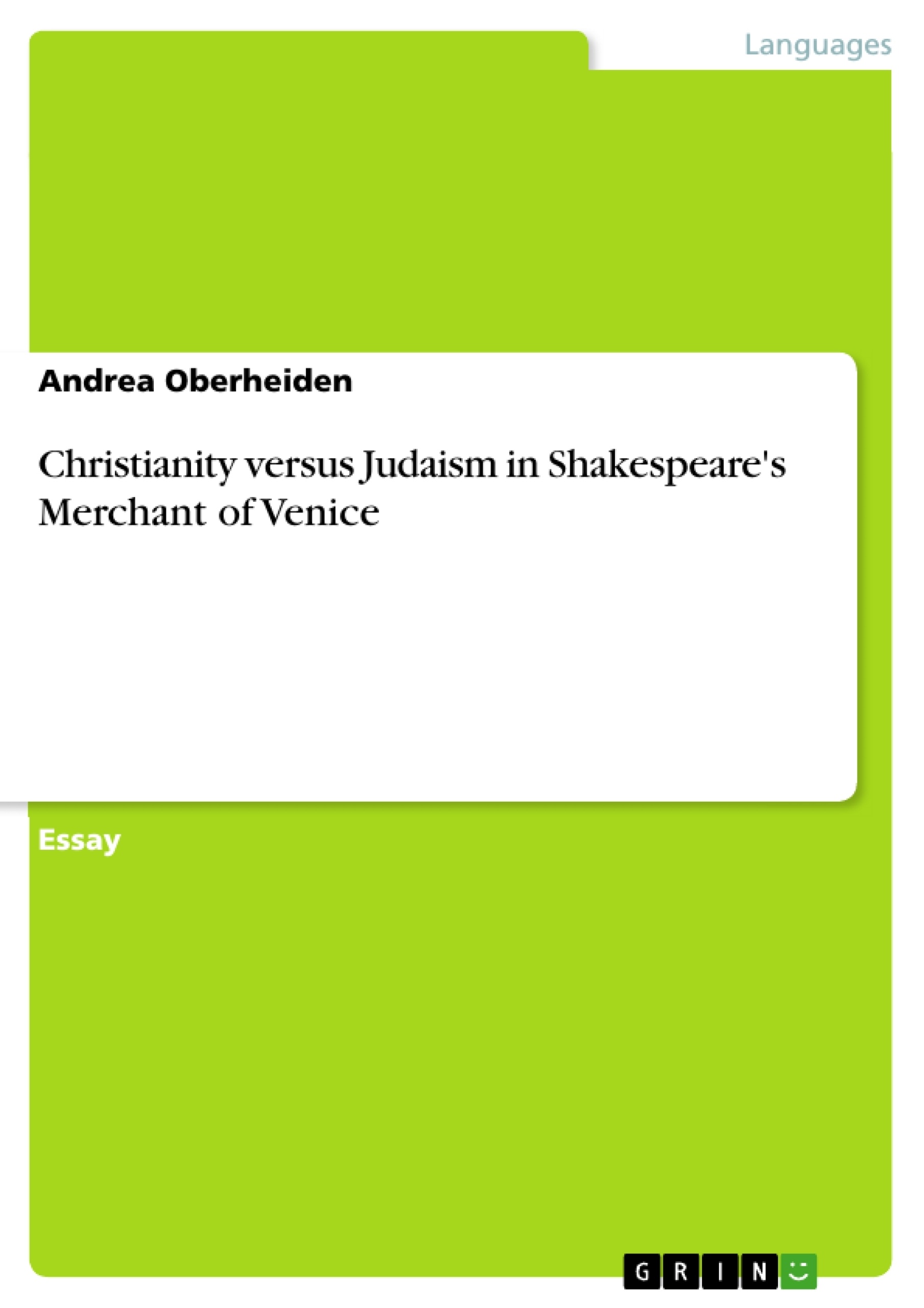In Shakespeare's Merchant of Venice, the Jewish character of Shylock refers to the biblical story of
Jacob tricking his uncle Laban (1.3.68-98) by tampering with the procreative process of Laban's
flock of sheep (Genesis 30.25-43). In the following, I will try to point out why Shylock tells this
story, and in which literary context he ruminates upon it. Besides a critical comparison of how his
speech interacts with the original biblical story, I will furthermore discuss this analogy foremost in
terms of its religious and dramatic functions within the play. Against this background, it will be
made evident that 'usury' as a negative Jewish stereotype, presumed by the judging eyes of medieval
Christians, is put in the centre of consideration here. It will be argued that as a general declaration in
MoV, a superiority of the New Testament to the Old Testament, of Christianity to Judaism, can be
derived, and that this conclusion is strongly linked with the majoritarian mindset in Shakespeare's
times and cultural sphere, rather than with Shakespeare's personal attitude towards Jews or Judaism,
an often supposed attitude of unprovable nature.
Inhaltsverzeichnis (Table of Contents)
- Christianity versus Judaism in Shakespeare's Merchant of Venice
- Introduction
- The Story of Jacob and Laban
- The Interconnection of Jews and Money
- The Equalization of Jew and Devil
- The Christian Triumph over Jewish Revenge
- The Problem of Nature
- Allegorical Interpretation
Zielsetzung und Themenschwerpunkte (Objectives and Key Themes)
This paper analyzes Shakespeare's play, The Merchant of Venice, focusing on the portrayal of the Jewish character Shylock and the religious and dramatic functions of his speech. The objective is to investigate the literary and theological context surrounding the play, particularly the representation of usury and the portrayal of Christianity's dominance over Judaism.
- The representation of usury as a Jewish stereotype in medieval Christian society
- The interplay between biblical narratives and the play's plot, particularly the story of Jacob and Laban
- The theme of the equalization of Jew and devil and its impact on the play's portrayal of Shylock
- The concept of Christian mercy and its triumph over Jewish revenge in the play's conclusion
- The use of allegorical interpretation in the play's themes and characters
Zusammenfassung der Kapitel (Chapter Summaries)
The paper delves into the story of Jacob and Laban, focusing on its relevance to Shylock's character and the argument surrounding usury in the play. It explores the historical context of the portrayal of Jews and money, emphasizing the Christian prejudice against moneylending and its influence on the depiction of Shylock. Furthermore, it examines the theme of the equalization of Jew and devil, highlighting its cultural context and its impact on the perception of Shylock. The chapter also explores the Christian triumph over Jewish revenge, focusing on the play's ending and the consequences for Shylock. Finally, it examines the concept of nature as it relates to the play's portrayal of Jews and Christians, considering the allegorical interpretation of the play's themes and characters.
Schlüsselwörter (Keywords)
Key terms and concepts explored in this paper include: usury, Jewish stereotypes, biblical narratives, Jacob and Laban, the equalization of Jew and devil, Christian mercy, Jewish revenge, allegorical interpretation, and the concept of nature.
- Quote paper
- Andrea Oberheiden (Author), 2008, Christianity versus Judaism in Shakespeare's Merchant of Venice, Munich, GRIN Verlag, https://www.grin.com/document/138271




